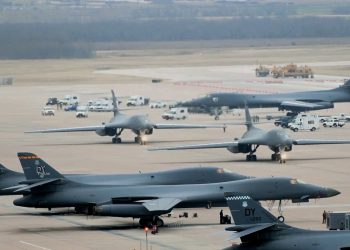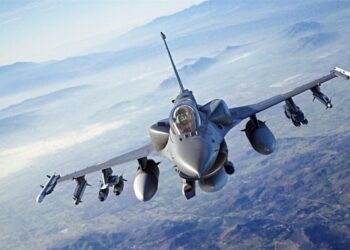US Air Force,
RAMSTEIN AIR BASE, Germany: Although no one is wearing a Stetson hat and there isn't a steer in sight, the journey to the 2007 Air Command Rodeo promises to be a wild one as 10 Ramstein Air Base aircraft maintainers prepare to saddle up on a Hercules.
Like an ornery old bull sitting in the chute waiting to be ridden, a 47-year-old E-model C-130 Hercules is the winged beast selected to represent the 86th Airlift Wing for the tactical cargo transport portion of the competition.
The AMC Rodeo challenges aircrews from all over the world in every aspect of their airframe's mission. More than 55 U.S. and international teams are slated to participate in the competition to be held July 22 through 28 at McChord AFB, Wash.
The competition focuses on readiness, and features airdrop, air refueling, and other events showcasing security forces, aerial port, maintenance and aeromedical evacuation personnel.
There are 45 U.S. teams, including three from the Marine Corps and one from the Coast Guard, as well as international competitors from Australia, Belgium, Brazil, Egypt, Germany, the Netherlands, Pakistan, Saudi Arabia, South Korea, Turkey and the United Arab Emirates. Nineteen other countries are sending observer teams.
The Ramstein AB aircraft will be the second oldest in the competition. Combined with its recent eight-month deployment downrange, this C-130 may be an unlikely candidate in the running for a trophy at the worldwide competition.
That doesn't worry Maj. Tony Nance, the 86th Aircraft Maintenance Squadron's operations officer, or any of his nine Rodeo team maintainers.
“The instant thought is: 'Old airframe, no chance in hell (in winning the competition),'” Major Nance said. “But there are many things working in the Rodeo team's favor.”
“First of all, we have the best of the best on the (Rodeo) team selected by our maintenance production superintendent, Master Sgt. Brett Elledge,” Major Nance said.
Nine maintainers representing six career specialties make up the team. Four crew chiefs share the limelight with one hydraulics specialist, an electrician, an engine mechanic, a communications and navigations specialist, and a guidance and control specialist.
“It's a great honor to be selected amongst your peers,” said Sergeant Elledge, a crew chief and veteran Rodeo participant. “We look at experience, work ethic and initiative. We even have two senior airmen on the team who were nominated because their supervisors felt they were performing at the NCO level.”
Even fitness scores can play a role in selection as the competition incorporates a fitness challenge amongst randomly selected team members.
Another advantage being savored by the Rodeo team of maintainers is that the aging plane selected to represent the wing had come due for a very thorough and in-depth periodic isochronal inspection.
Over the course of two weeks, scores of mechanical, structural, electrical and communications specialists poured over every inch of the plane to identify and repair what literally amounted to over a thousand write-ups. A huge benefit to the nine-member team charged with readying the plane for competition.
Knowing the aging C-130 would be subjected to thorough inspections based on functionality and aesthetics, team members spent many hours pouring over the smallest details.
Senior Airman Arron Jenkins, an electro-environmental specialist, said he has inspected an estimated 12 miles of electrical wire throughout the plane.
“With wire management, everything has to be aesthetically pleasing, so anything that wasn't quite perfect, I had to go in and retie it and bundle it back up,” he said.
As one of the most junior members on the Rodeo team, Airman Jenkins attributed much of his experience and competence to his previous assignment at Osan AB, Korea, working on F-16 Fighting Falcons and A-10 Thunderbolt IIs he described as a “fast-paced and highly scrutinized world.”
Tech. Sgt. Christopher Adams, a turbo-prop engine mechanic, said his previous involvement in a Rodeo competition while stationed at Elmendorf AFB, Alaska, was where he learned to be a mechanic.
“The more senior mechanic on my last Rodeo team knew every nut and bolt on these engines,” he said. “I was literally like a secretary writing down all the problems he found with the engine. It's how I learned a lot of what I know now.”
With the amount of work the team has put into the plane, Sergeant Adams said he feels they could compete with anybody.
“It would be nice to beat up on some '96 models,” he said. “I love coming in as the underdog and I wouldn't have it any other way.”









